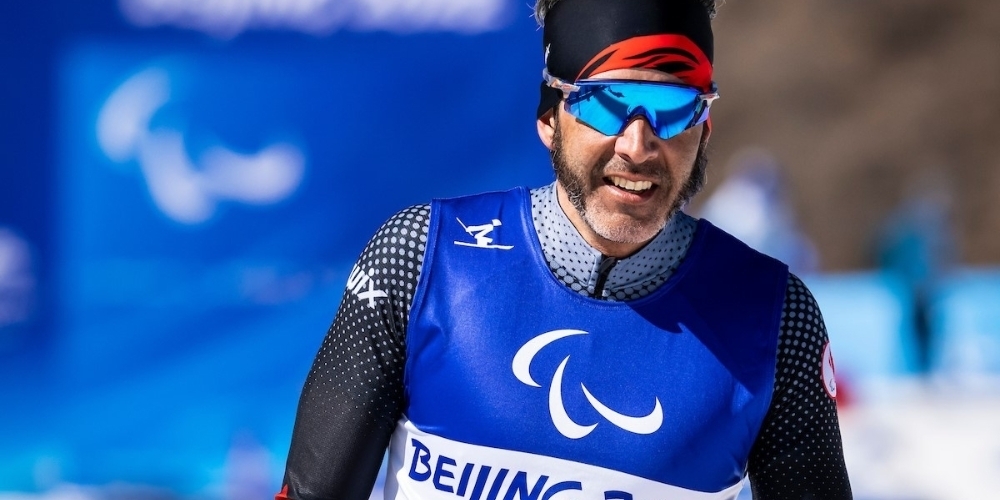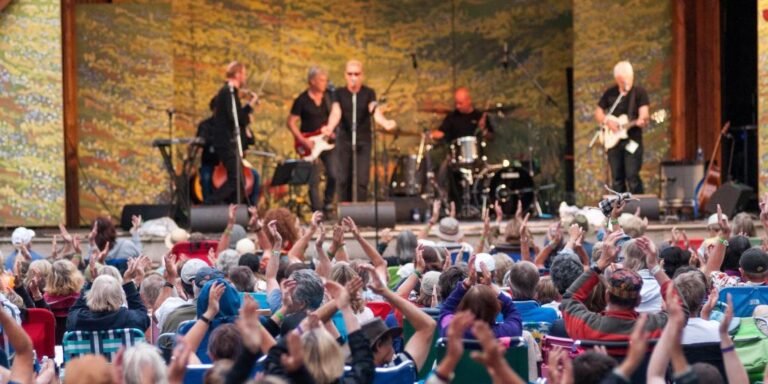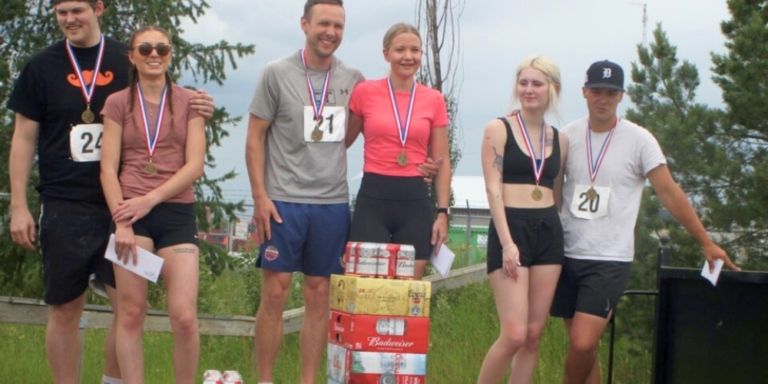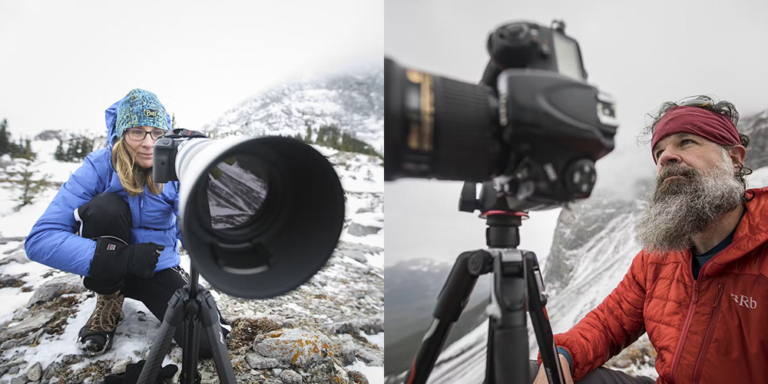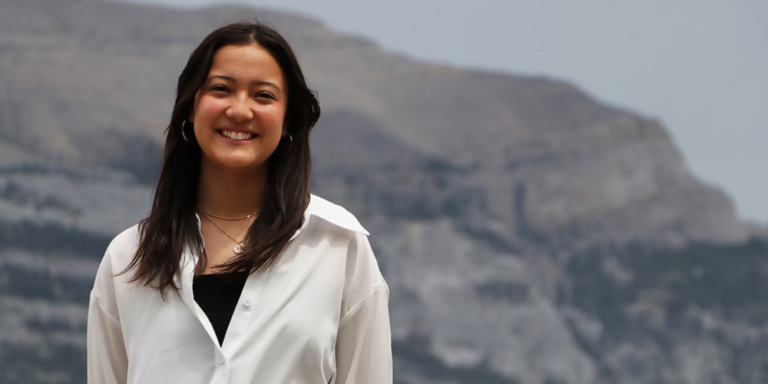We Albertans like being the best in the world at things. We pride ourselves on solving hard problems, working hard, and overcoming challenges. That is the real Alberta advantage.
One Canmore athlete personifies this Alberta spirit, Brian McKeever.
That’s why the Canadian Paralympic Committee (CPC) recognized his fantastic career in August.
McKeever reminded us to keep pushing no matter our limitations
Think back to the COVID years. In the face of the ongoing pandemic hardships, the Tokyo 2020 and Beijing 2022 Paralympic Games were a light in the darkness.
McKeever represented Canada at these two Paralympic Winter Games and the four previous over the last two decades.
McKeever’s Paralympic journey began at 19 when he was diagnosed with Stargardt disease, a rare genetic eye disease that causes progressive vision loss.
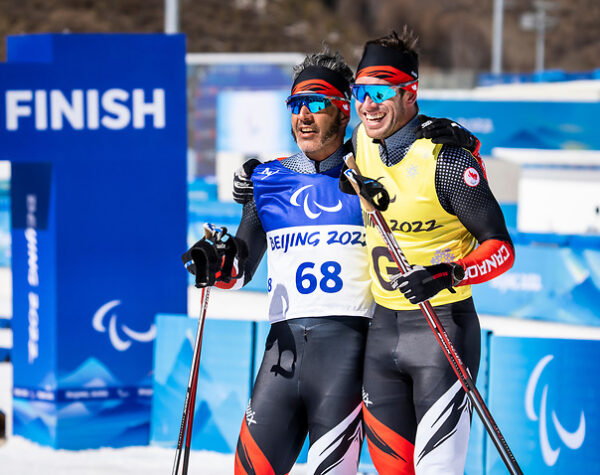

But like a tried and true Albertan, McKeever gave his disability the middle finger and chased his dreams anyway.
Shortly after his diagnosis, McKeever was introduced to Para-Nordic skiing and has never looked back.
At the 2010 Games in Vancouver, McKeever made history. He became the first athlete to be selected for both the Olympic and Paralympic teams.
Before competing in Beijing in 2022, 43-year-old McKeever announced it would be his last Games, signalling the end of the Para-Nordic skiing legend’s career.
Para-Nordic skiing includes both cross-country skiing and biathlon.
The biathlon involves a two or 2.5-kilometre course skied three to five times for a total race distance between six and 15 kilometres.
If that doesn’t sound hard enough, after racing as fast as they can, biathletes must stop, slow their heart rate, unholster their rifle and hit two targets at a distance of ten metres. That’s like sprinting up the stairs of the Calgary Tower, then immediately performing heart surgery when you get to the top.
Athletes with vision impairment are aided with sounds that change depending on whether the athlete is on target or not. McKeever competed in the men’s vision impaired long distance 20 kilometre, sprint cross-country, and the middle distance 12.5 kilometre events.
McKeever had a slow start in the cross-country sprint, but he quickly gained momentum and overtook American Jake Adicoff in the final stretch to secure the gold by a mere 0.8 seconds.
“I’m not able to start very fast at my age, so I really have to build into it. We talked about that and tried to build through the whole race,” said McKeever.
The Canmore badass won the gold medal in each event, bringing his Paralympic gold medal count to 16 and total medal count to 20. McKeever is now tied with German alpine skier Gerd Schönfelder for most medals won by a winter Paralympian.
But to McKeever, the Beijing 2022 Games weren’t just about athletic achievements. It was also about finding balance from the human side of things.
The Games in Beijing were held in March 2022. With the stress around COVID-19 and news that Russia had invaded Ukraine a month earlier, you could cut the tension with a knife.
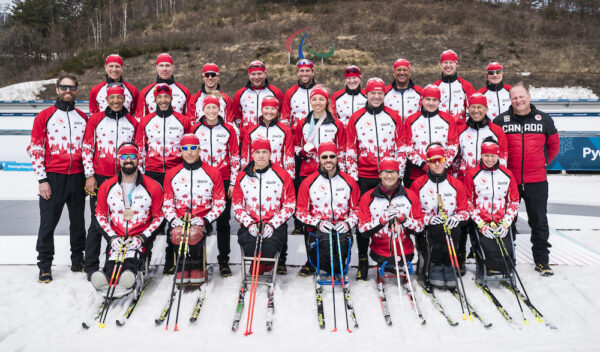

“I have friends on the Ukrainian team, and we’ve known each other a long time, and to see them on the side of the trail and not shake their hands and give them a hug and share in some of those moments of friendship, in spite of the fact that we were trying to beat each other on the race course, that was the important balance to find,” McKeever told the Rocky Mountain Outlook.
Since McKeever retired, he became head coach of the Canadian Para-Nordic ski team alongside coach Bjorn Taylor.
“I firmly believe continuity is critical to success. Brian and Bjorn are two of the most trusted and respected individuals in the Para-Nordic sports community who know what it takes to win,” said Kate Boyd, High-Performance Director for Nordiq Canada, the governing federation for cross-country skiing in Canada.
While McKeever is walking away from his exceptional skiing career, he is confident in his teammates, stating, “There are a lot of leaders on our team who will pass those experiences on to future generations on our team.”
The CPC recently announced $200,000 in grants to support Para sports programming.
Grants were given to 18 organizations across seven provinces and ranged from $5,000 to $15,000.
Recipients in Alberta included the Steadward Centre for Personal & Physical Achievement, Edmonton Adaptive Sports Association, and Cross Country Alberta Society.
The Cross Country Alberta Society offers online training about the Paralympics to coaches. It also hosts ‘try-it’ events during the winter, where participants can try Para-Nordic skiing.

